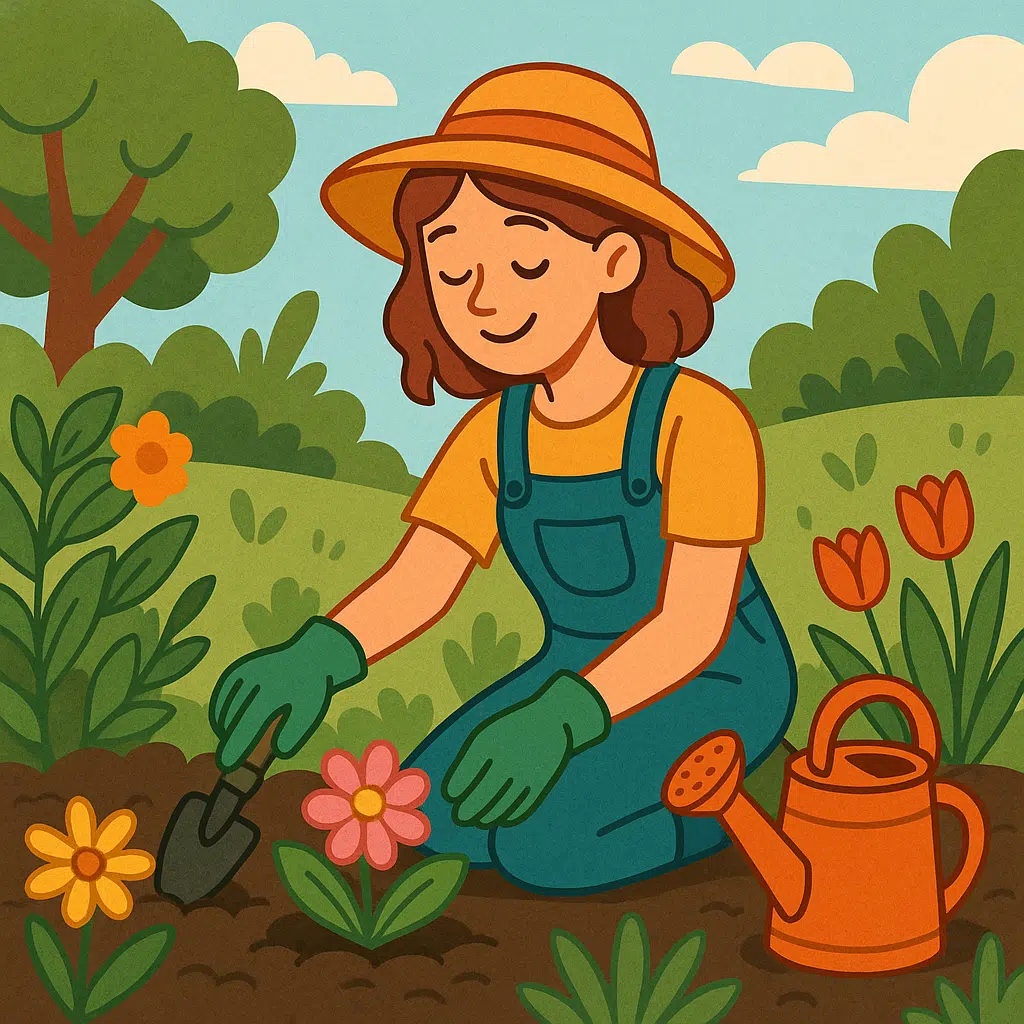How Gardening Can Improve Your Mental Health
Charlotte Stone August 12, 2025
You’re scrolling through another wellness trend wondering what actually sticks—not some fluff. Well, How Gardening Can Improve Your Mental Health isn’t just a slogan—it’s backed by studies, emerging trends, and yes, legit science. Let’s chat about why this hype train is even worth your attention in 2025.

1. What’s Hot in 2025 Gardening & Mental Health
Foodscaping: Beauty Meets Edible Goodness
Ever heard of foodscaping? It’s just as cool as it sounds—landscaping that gives you strawberries while looking Insta-worthy. It’s edible, beautiful, and deeply therapeutic. Swapping lawn grass for kale or marigolds gives you garden joy and dinner all in one. Plus, studies show edible landscapes foster not only sustainable living but also mental wellness through visual pleasure and productivity.
Gardening Communities and Mental Resilience
Turning soil with neighbors? Yes. Community gardens are skyrocketing in significance—gardens become healing spaces where people connect, chat, share tips, and instantly reduce feelings of isolation. In Singapore, community gardening during the COVID era helped improve optimism and overall well‑being. Across the U.S., community gardens also dropped anxiety and drove vegetable intake.
Triggering Brain Chemistry
Turns out, dirt isn’t just dirty salt-of-the-earth…it literally helps: some soil bacteria promote serotonin production (that’s the body’s “feel-good” hormone). Gardening regularly may even lower dementia risk by about 36%. And yes—soiling your hands could actually help your brain.
Tele-Gardening: VR Forest Bathing
No backyard? No problem. VR nature experiences are trending, especially for folks stuck indoors or with limited mobility. High‑fidelity VR “forest bathing” environments reduce stress, boost mood, and sharpen focus—even if the forest isn’t real.
2. Proven Ways Gardening Boosts Mental Health
Mood, Stress & Mental Health Boosts
Digging isn’t just physical; it’s deeply emotional. From lifting mood and reducing stress to lowering depression levels—multiple studies confirm gardening works. And for folks managing chronic illness, structured gardening programs produce small‑to‑medium improvements in mental health.
Better Sleep & Cognitive Focus
Fancy catching more Zzzs and staying sharper? Gardening may help: people who garden have fewer sleep complaints than those who don’t. Plus, spending time with greenery or even simply viewing plants can heighten concentration—thanks to what’s called the Attention Restoration Theory.
Physical Routine = Mental Rhythm
Doing garden routines like weeding or watering offers satisfying structure—little wins that add up. It’s calming, mood‑boosting, and helps us feel competent.
Social Bonding & Community Healing
Gardening with others isn’t just about crops; it’s about caring and connection. Community gardens foster belonging, emotional support, and even purpose—especially helpful for people with mental health challenges.
3. How to Start (Even if You Have Zero Green Thumb)
- Begin with Micro stuff: pot some herbs or sprouts indoors.
- Try Foodscaping: toss a basil plant near your rose bush and admire both.
- Join a Community Plot: learn, bond, and grow—literally.
- DIY VR Forest Escape: get a headset, find nature apps, reset from the couch.
- Stick to a Routine: watering, pruning, or just sitting with your plants each day.
- Track the Feelings: note how you’re doing—it’s basically spiritual journaling.
4. Christian Vibe Corner
Just between friends—and also Jesus—this isn’t fluff. Grounding yourself in creation is biblical. Psalm 104 is all about how God made the earth and how creation praises Him. Gardening reminds us of God’s care for us (Matthew 6:28‑29, anybody?). It’s not just therapy—it’s a worshipful rhythm. Tending a garden can mirror how God cares for us, and we respond by tending others. So when you’re turning soil, you’re also turning your heart toward Him.
5. Real-World Example: Providence, Rhode Island
One writer described starting with a tiny indoor herb setup, then building a community garden in Providence. It became a ritual of peace, connection, and—even through failure—growth. Soil, squirrels, neighbors… all teaching lessons about resilience. And yes, dementia risk dipped, stress dropped, and community bloomed.
6. Trend Snapshot: Gardening Meets 2025 Reality
| Trend Area | Why It Matters for Mental Health |
|---|---|
| Foodscaping | Feeds you, beautifies your space, gives you a sense of achievement |
| Community Gardening | Builds bonds, heals isolation, boosts shared joy |
| Blue-Green Chemistry | Real brain chemicals (serotonin, dopamine), real benefit |
| Biophilic VR Nature | Sensory reset even when real nature is out of reach |
| Routine & Purpose | Daily rhythms mirror spiritual rhythms—rooted, reliable, restorative |
7. Wrapping Up
If you’ve read this far, here’s the tea: How Gardening Can Improve Your Mental Health isn’t just a buzzy tagline—it’s a movement. Whether you have a yard or just a windowsill, a community or solitude, this little act of growing can do big things—for your mind, body, and soul. And yes, spiritually too.
The beauty of gardening lies not in perfection, but in the process itself. Every seed you plant is an act of faith in tomorrow. Every weed you pull is a meditation on letting go. And every bloom reminds us that growth happens slowly, quietly, then all at once—just like healing.
In our hyperconnected world, gardening offers something revolutionary: presence. It rewards consistency over intensity, care over control. It teaches resilience through seasons of failure and abundance alike, showing us that small daily actions compound into something beautiful and nourishing.
Perhaps most importantly, gardening connects us to something larger than ourselves. Tending to living things roots us in the truth that we are part of nature, not separate from it. Every plant we nurture nurtures us back.
8. Final Thoughts
So go get some soil under your fingernails. Your mental health garden is waiting to be planted, one seed at a time. It doesn’t matter if you kill a few plants along the way—every gardener does. What matters is that you begin and trust the process.
It might just ground your soul in ways you never imagined possible.
References
- Panțiru, I., Ronaldson, A., Sima, N., Dregan, A., & Sima, R. — The impact of gardening on well‑being, mental health, and quality of life: An umbrella review and meta‑analysis. Systematic Reviews, 2024. systematicreviewsjournal.biomedcentral.com
- University of Florida (Charles Guy, et al.) — Gardening can cultivate better mental health. PLOS ONE, sciencedaily.com
- Michigan State University (Katherine Alaimo, et al.) — New MSU research shows gardening improves mental, social well‑being. People and Nature, August 26 2024. canr.msu.edu







